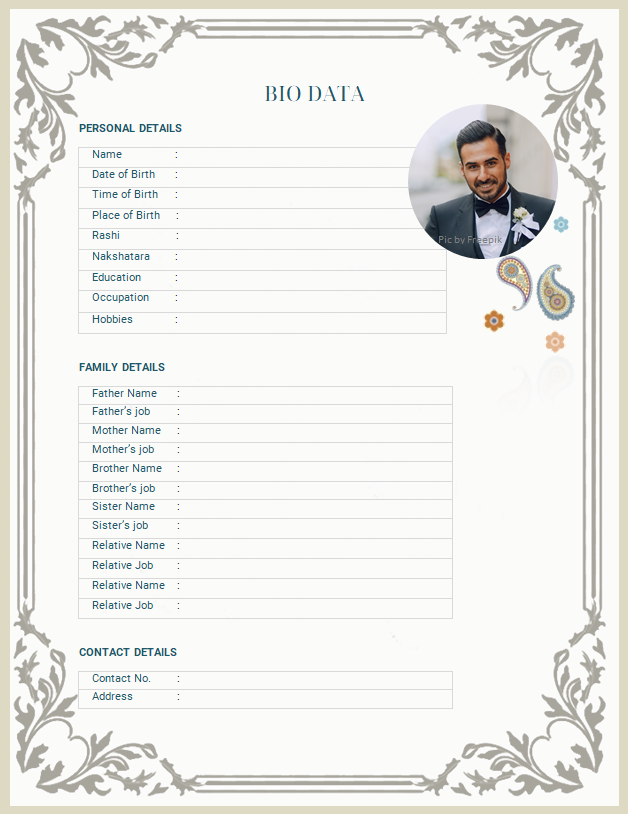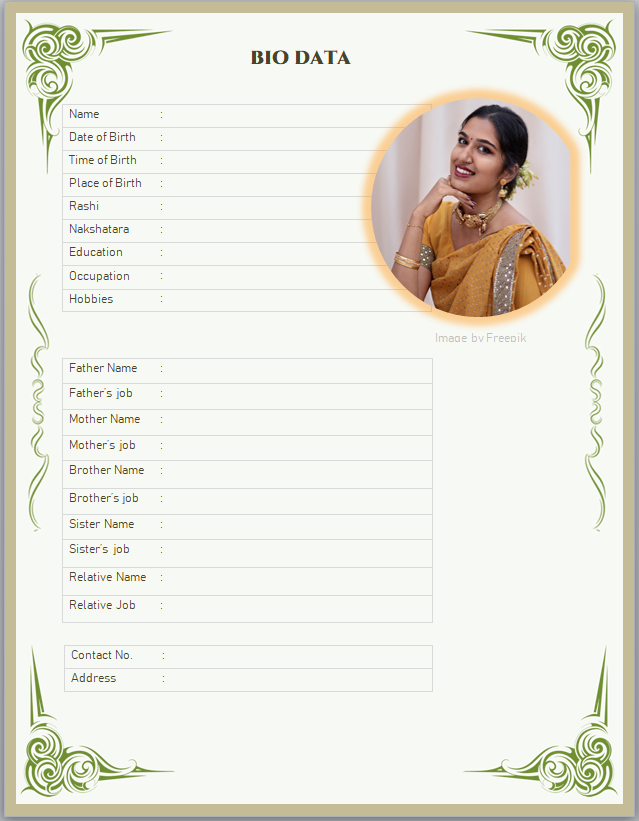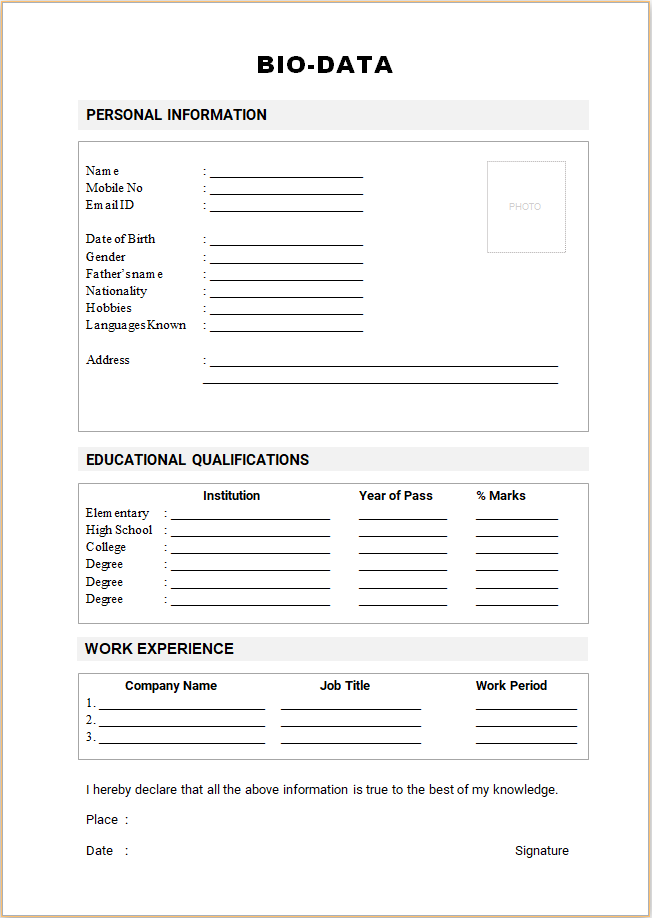Elegant biodata format for job
Biodata format in MS word

Biodata format
In the digital age, where information is easily accessible and shared, safeguarding personal information has become paramount. Creating a biodata for job applications is a common practice, but it's crucial to be mindful of what details you include to protect your identity and privacy. One fundamental aspect to consider is avoiding the inclusion of government-issued IDs, such as passports, in your biodata.
Understanding the Significance of Personal Information:
Personal information includes details that uniquely identify an individual, such as full name, address, phone number, email, and more sensitive identifiers like government-issued identification numbers. In the context of a biodata, the primary goal is to present relevant professional information while keeping sensitive details secure.
The Role of Biodata in Job Applications:
A biodata serves as a snapshot of your qualifications, experiences, and skills, enabling potential employers to assess your suitability for a position. While it's important to provide enough information to make a compelling case, certain details, like government IDs, should be strictly avoided.
Why Exclude Government-Issued IDs:
Identity Theft Prevention:
Including government-issued IDs in your biodata exposes you to the risk of identity theft. Unauthorized access to such information could lead to serious consequences, including financial fraud and misuse of personal records.
Adherence to Best Practices:
Professional standards and best practices in resume and biodata writing discourage the inclusion of sensitive government identification. Employers are interested in your qualifications, skills, and experiences, not your personal identification numbers.
Legal and Ethical Considerations:
In many regions, there are legal and ethical guidelines governing the handling of personal information. By refraining from including government IDs, you demonstrate adherence to these standards, reflecting positively on your professionalism.
Tips for Protecting Personal Information in Your Biodata:
Focus on Professional Details:
Highlight your educational background, skills, work experiences, and relevant certifications. These aspects are crucial for employers and don't compromise your privacy.
Use a Professional Email Address:
Ensure your email address is professional and doesn't include sensitive personal details. Stick to a combination of your name and numbers if needed.
Limit Address Details:
While including your location is common, avoid providing a detailed home address. A city or general location is usually sufficient.
Protecting Social Media Links:
If you include links to your social media profiles, review your privacy settings to control what information is visible to the public.
References Upon Request:
Reserve space on your biodata for professional references but refrain from including their contact details. Instead, state that references are available upon request.
In the age of increasing cyber threats and identity theft, taking proactive measures to protect personal information is crucial. When creating your biodata, focus on presenting a compelling professional profile without compromising sensitive details. By adhering to best practices and avoiding the inclusion of government-issued IDs, you not only safeguard your identity but also showcase your awareness and commitment to privacy and security. Your biodata should be a tool to advance your career, not an avenue for potential risks to your personal information.
Additional Inputs
Please do not include any sensitive and private information about yourself of your family on the biodata.


